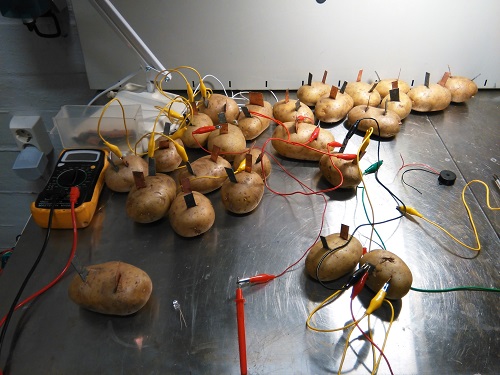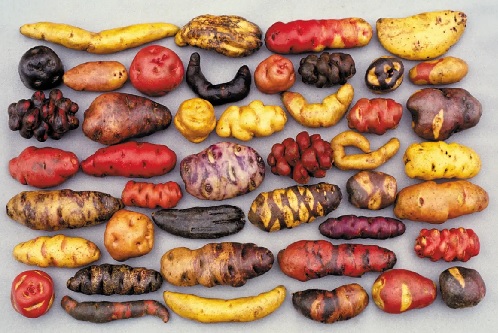
“Just what kind of potato are you running this game on? Hurry up already!” Oh, the poor potato. How the outstanding image of this potent source nutrition of has fallen. Before, it was the food that allowed vast empires to rise and saved the peasantry of the Old World from the ever looming threat of starvation, now a mere insult to refer to a slow PC or internet. Its role as a dietary staple finds itself challenged as over-nutrition and the risk of developing non-communicable diseases stemming from unhealthy diets continually increases. Yes, the humble potato finds itself amid an identity crisis.
The history of the potato begins about 13,000 years ago along the shores of Lake Titicaca in modern day Peru, where it is believed the plant was domesticated (Ortiz, 2020). As the staple crop of the Andes, the potato would allow the Inca to rule over the largest empire in the New World. When the Spanish came and brought the potato back to Europe, they inadvertently would bring one of the most productive crops back to the Old World that would forever alter the course of history. The subsequent increase in the population of Europe would ultimately allow a handful of European countries to create world-spanning colonial empires the likes of which had never been seen before (Mann, 2011). Way to go for a crop that was looked down upon universally when it arrived in Europe.
Just as the potato conquered the world, it came to conquer our diets. We eat potatoes all the time, at least we do in the West. We boil them, mash them, fry them, chip them, scallop them, bake them. In short, we cook them in nearly every method that is available to us. And now, there is debate as to whether our continued consumption of potatoes can be considered healthy. Nutritionists argue that we should eat more vegetables. However, do potatoes count as a vegetables when it comes to dietary guidelines? The verdict is still out, with some nutritionists advising us to eat fewer potatoes, with other arguing that the potato’s bad reputation is undeserved (Haspel, 2017).
In my project, I’ve built upon the work of my MScCCAFS predecessor Anna Whitton and included potatoes in the vegetables category. Throughout the course of my project, I’ve found that certain datasets including the ones created by Global Burden of Disease and Global Dietary Database deliberately mention their vegetables category does not include starchy tubers. It’s a debate that rages on. Certainly, in the West we could perhaps do with less starchy tubers in our diet. I could not imagine giving the same advice to populations which depend heavily on starches such as cassava and yam as their main form of nutrition to reduce their intake of starches. And herein lies one of the problems of creating dietary guidelines. How can a single dietary ideal account for the differing needs and realities of different populations? Perhaps this is why they’re called ideals.
What is certain, however, is the world’s continued fascination with the world’s most popular nightshade. While studying in Ireland, I discovered delicious varieties of potatoes I had never known before. Peru boasts over 4,500 varieties, many of which may become important as climate change threatens the viability of extensively grown varieties (Collyns, 2019). Potatoes once saved the common man from starvation, and they may very well do so again and regain the heroic status they once held. No longer should we think of the potato as a joke. After the Covid-19 Pandemic is brought under control, a trip to Peru to satisfy my hunger for new varieties (and to get out of the house) may very well be in order.

References:
Collyns, D., 2019. How Peru’s potato museum could stave off world food crisis. The Guardian. Available at: https://www.theguardian.com/environment/2019/nov/29/how-perus-potato-museum-could-stave-off-world-food-crisis [Accessed August 19, 2020].
Haspel, T., 2017. Classify potatoes as a whole grain, not a vegetable. The Straits Times. Available at: https://www.straitstimes.com/lifestyle/food/classify-potatoes-as-a-whole-grain-not-a-vegetable [Accessed August 19, 2020].
Mann, C.C., 2011. How the Potato Changed the World. Smithsonian.com. Available at: https://www.smithsonianmag.com/history/how-the-potato-changed-the-world-108470605/ [Accessed August 19, 2020].
Ortiz, D.A., 2020. Travel – How the humble potato changed the world. BBC. Available at: http://www.bbc.com/travel/story/20200302-the-true-origins-of-the-humble-potato [Accessed August 19, 2020].